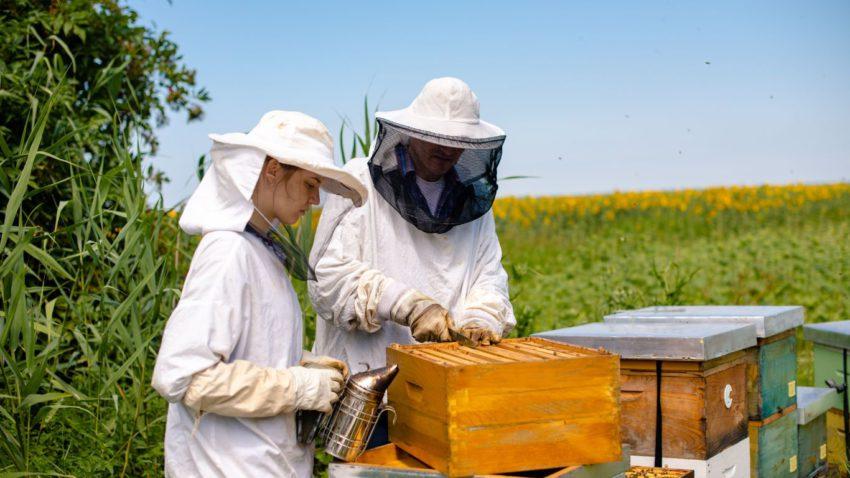It’s early summer, and honey bees are busy foraging for nectar and pollen, nurturing their larvae, and producing honey. But what are the beekeepers up to?
Radio Catskill reporter Chia-Tien Nicole Chen spoke to Robyn Underwood, the Extension Educator of Apiculture at Penn State, to find out. With nearly 30 years of researching honey bees, and a Ph.D. in entomology from the University of Manitoba, Underwood describes her work as “teach[ing] beekeepers to be better beekeepers.”
She devised an online, self-paced course called “Beekeeping 102: Organic Honeybee Colony Management,” which is now open for registration through Penn State Extension. In it, she goes over beekeeping methods such as organic-approved pest control techniques and a calendar of tasks to be completed throughout the seasons.
Underwood is the lead author of a three-year study published in Scientific Reports last year, which concluded that honey bees managed with organic methods are as productive and healthy as those managed conventionally. The research formed the basis of this course, she said: “I felt very confident that if other beekeepers tried the management that I did, they would have equal success.”
Using an organic management system for a honey bee colony does not mean that it is USDA organic certified, she notes. Honey bees forage within a three-mile radius, and it is difficult to guarantee that the plants they forage from are organic, too. When asked why one would choose organic methods over conventional ones, she responded, “If you don’t need to use synthetic chemicals, why would you? That’s kind of my take on it. I prefer to use something that I’m more comfortable with, and that is the organic treatments.”
Around 2007, the beekeeping world was abuzz with talk of colony collapse disorder, a phenomenon where adult bees were suddenly disappearing from their hives, leaving behind the queen and food stores, for no clear reason. CCD devastated beekeeping operations, with some reporting loss rates as high as 90%, according to the Environmental Protection Agency.
Though she researched the phenomenon as it emerged, Underwood doesn’t hear much about CCD anymore — yet beekeepers continue to face high loss rates. A survey conducted by the Bee Informed Partnership, a nonprofit that works with beekeepers and researchers to improve honeybee health, found that an estimated 37.4% of managed honey bee colonies were lost over the winter of 2022. Chief among the causes was a parasite called the varroa mite, which beekeepers liken to “having a tick the size of a dinner plate biting you,” said Underwood.
Careful, intentional beekeeping management remains the key to healthy colonies. Healthy colonies are crucial not just for the production of delicious honey, but also for the production of agricultural crops, which rely on honey bees for pollination. And, beekeeping is a deeply rewarding practice, said Underwood. “It’s a great passion for people that are lifelong learners that want to learn. And, when I go out to see my bees and they’re healthy and making lots of honey, I feel it in my soul. It’s just kind of a part of me.”
Photo by Jovan Epn / Getty Images

